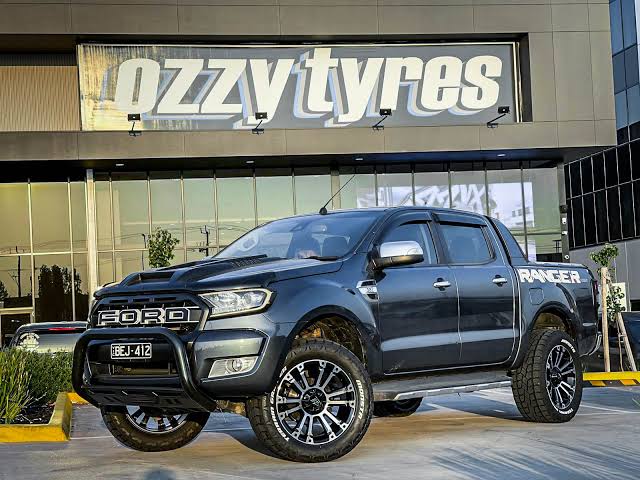The Pros and Cons of Changing Your 4x4 Wheels: An In-Depth Analysis
May 17, 2023
iCrowdMarketing powered by iCrowdNewswire

The wheel is the backbone of any vehicle, and in the context of a 4x4, it plays a significant role in determining the performance, comfort, and safety of your off-road adventures. Many 4x4 owners contemplate whether to change their wheels or stick to the factory-installed set. To aid in this decision-making process, this article will explore the pros and cons of changing your 4x4 wheels.
Pros of Changing Your 4x4 Wheels
- Improved Off-Road Performance: Changing your 4x4 wheels can significantly enhance your vehicle's off-road capabilities. Larger wheels with wider and chunkier tires can offer better traction on tricky terrains like mud, sand, snow, and rocky landscapes, ensuring a safer and more adventurous off-roading experience.
- Customization: A new set of wheels provides an opportunity to customize your vehicle to match your style. With a vast array of designs and finishes available, you can transform your 4x4 into a unique reflection of your personality.
- Enhanced Resale Value: Upgraded wheels can potentially increase your 4x4's resale value. A well-maintained vehicle with custom wheels often appeals to prospective buyers, thereby boosting the vehicle's market value.
- Improved Comfort and Handling: High-quality, aftermarket wheels can lead to improved handling and a smoother ride. They can reduce road feedback, absorb bumps more efficiently, and decrease roll in corners.
Cons of Changing Your 4x4 Wheels
- Increased Costs: The process of upgrading your 4x4's wheels can be costly. High-quality, aftermarket wheels often carry a hefty price tag, not including the costs for fitting and balancing. Additionally, larger wheels require larger tires, which are more expensive to replace.
- Potential Compatibility Issues: Not all aftermarket wheels will fit perfectly with your 4x4. You might encounter compatibility issues with the wheel hub, brake calipers, or suspension components. Therefore, a thorough inspection and professional fitting are necessary to avoid these problems.
- Ride Comfort Trade-off: While larger wheels can enhance off-road performance, they can also make the ride less comfortable on regular roads. Larger wheels transmit more road noise and harshness into the cabin, which can affect the overall ride quality.
- Possible Reduction in Fuel Efficiency: Larger and wider wheels can increase rolling resistance, which may result in lower fuel efficiency. This might not be a significant issue for occasional off-roaders, but for daily drivers, the added fuel cost can quickly add up.
- Potential for Increased Wear and Tear: Heavier wheels and tires can put extra strain on the suspension and brakes, leading to accelerated wear and tear. This means more frequent servicing, replacing parts more often, and increased long-term costs.
In conclusion, changing your 4x4 wheels has both advantages and disadvantages. It can enhance your off-road performance, allow for customization, improve resale value, and potentially improve handling. However, these benefits come at the cost of increased upfront and long-term expenses, potential compatibility issues, possible reduction in ride comfort and fuel efficiency, and the risk of increased wear and tear.
Before making a decision, it's crucial to consider your driving habits, budget, and personal preferences. Consulting with a professional can also provide invaluable insights into the best wheel options for your particular 4x4 model. Remember, the goal is to strike a balance between aesthetics, performance, and practicality.